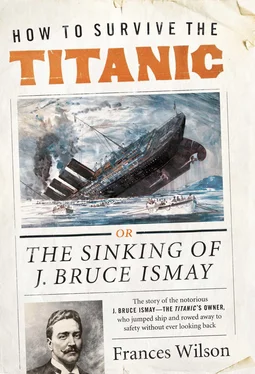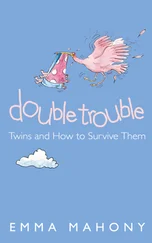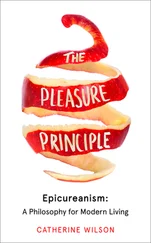Lord Jim, as Conrad finally called his tale, began life in April 1898 as ‘Jim: A Sketch’. It was based on an incident which became the focus of interest in Singapore in 1880: the SS Jeddah, carrying 950 pilgrims to Mecca, sprang a leak and was abandoned by her crew. The officers reported the ship lost, to then hear that she had been towed to Aden with all her passengers alive. The scandal became the subject of an inquiry in Aden and a debate in the Singapore Legislative Assembly. The Straits Times reported in September 1880 that ‘public excitement has risen to fever pitch’ in ‘surveying the conduct’ of the Jeddahs captain and crew. The story was also vividly and extensively covered in the English newspapers read by Conrad in London as he was waiting for a passage to Sydney. ‘DREADFUL DISASTER AT SEA: LOSS OF NEARLY 1,000 LIVES’, ran the Globes headline when it was still believed that the Jeddah had sunk. ‘We trust that no Englishman was among the boatload of cowards who left the Jeddah and her thousand passengers to fend for herself,’ wrote the Daily Chronicle when the truth was revealed. The crew, Conrad believed, had betrayed ‘a tradition… as imperative as any guide on earth could be’. But it was the possibility of betrayal, the proximity we all have to failure by which he was fascinated.
‘I always suspected’, Conrad said, that ‘I might be no good.’ He took as his model for Jim the Jeddahs chief mate, Augustine Podmore Williams, the strapping young son of an English country parson who had, like Jim, started as a cadet on a training ship. Williams, who claimed that he did not jump but was ‘thrown overboard’ by the pilgrims, was severely condemned by the inquiry but stayed in the East and ‘worked out his salvation’ as a water clerk, marrying a sixteen-year-old Singaporean and fathering sixteen children. He faced out his crime as a gentleman should, and it was the manner of his living on which interested Conrad as much as the loss of his honour. In his preface to Lord Jim, Conrad writes that ‘one sunny morning, in the commonplace surroundings of an Eastern roadstead’, he saw Augustine Podmore Williams ‘pass by — appealing — significant — under a cloud — perfectly silent. Which is as it should be. It was for me, with all the sympathy of which I was capable, to seek fit words for his meaning. He was “one of us”.’ The biographer Norman Sherry is convinced that Conrad not only saw but spoke to Williams, and ‘heard his history from the man himself. I feel certain that it was his intimate knowledge of Williams’s life and character, in fact, which led Conrad “to seek fit words for his meaning” with all the sympathy of which he was capable.’ 3
Conrad had been working as a writer for four years when he began his sketch of Jim, which was to be a short story of 20,000 words and completed, he anticipated, by April 1899. But he wrote Heart of Darkness that year instead, and when the April deadline passed for the Jim story the submission date shifted to July, and then August. ‘I am utterly weary of thinking, of writing, of seeing, of feeling, of living,’ Conrad complained to John Galsworthy in September. The first four chapters of Lord Jim were published that October in the literary monthly Blackwood’s and Conrad thought that maybe another four instalments would be enough to round the thing off. But in November he revised his opinion: the book would be complete in five instalments; it would be twelve chapters long and ready by the end of December. The New Year dawned and Conrad had now written eighteen chapters; he would finish by the end of the month. By February he had completed twenty chapters and was no longer forcing the words out of himself. ‘It comes! it comes’, Conrad cried; the writing was taking him over, the book was writing him. He had thrown himself down a building with no ground floor. A 20,000-word story had doubled in length, then doubled again, then again. It was changing shape daily; Conrad was describing, as the reviewer for the New York Times Book Review put it, everything in three dimensions. He was greedy for words, he piled them high and stretched them out, he loaded the sentences down, stuffing them to the limit like bags which had to be got across the room before they burst apart. In April 1900 he believed he had reached the end but the writing kept on coming and in May he sent off chapter thirty-one.
On 9 July, he announced that he had finished; he announced it again on 12 July, and then, on 14 July, he sent his wife, Jessie, and young son, Borys, to London before sitting down at 9 a.m. to write for twenty-one hours. Ink splattered across page after page, paper fell in piles to the floor, the room was a fug of smoke, the sun rose and then sank, and he put down his pen only when he had drained from Jim’s jump the last drop of meaning. ‘And that’s the end,’ Conrad wrote as he completed chapter forty-five. ‘He passes away under a cloud, inscrutable at heart, forgotten, unforgiven, and excessively romantic.’
As Conrad gathered the pages together there came over the house a great silence. This is how he described the scene to John Galsworthy: ‘Cigarette ends growing into a mound similar to a cairn over a dead hero. Moon rose over the barn, looked in at the window and climbed out of sight. Dawn broke, brightened. I put the lamp out and went on, with the morning breeze blowing the sheets of MS all over the room. Sun rose. I wrote the last word and went into the dining room. Six o’clock I shared a piece of cold chicken with Escamillo [the dog] (who was very miserable and in want of sympathy, having missed the child dreadfully all day). Felt very well, only sleepy; had a bath at seven and at 1.30 was on my way to London.’ 4 Lord Jim was published three months later to a mixture of astonished and exasperated reviews. Like Conrad’s other novels and stories, it walked a tightrope between high modernism and light reading, the existential and the ripping yarn. It appealed to schoolboys who read nothing but the Boy’s Own Paper and professors who placed it alongside their copies of Henry James.
Lord Jim can be told in a single sentence: Jim jumps from a sinking ship and then faces a life without honour. The tale was, Conrad wrote to his editor at Blackwood’s, ‘the development of one situation, only one really from beginning to end’. It is not a complicated plot and nor is Jim an enigmatic figure, but in Conrad’s hands the story becomes manifold and Jim’s consciousness a maze. ‘Imagine a fat, furry spider with a green head and shining points for eyes, busily at work, some dewy morning, on a marvellous web,’ wrote the reviewer for The Critic, ‘and you have the plot of Lord Jim. It spins itself away, out of nothing, with sidetracks leading, apparently, nowhere, and cross tracks that start back and begin anew and end once more.’ Conrad’s preferred method of narration is a story within a story: most of the book is contained in quotation marks, sometimes three in a row — ‘ ‘’ ” — and it is Captain Marlow’s role to hold the different frames together. Lord Jim opens with Conrad’s narrator introducing Jim to the reader: ‘He was an inch, perhaps two, under six feet, powerfully built, and he advanced straight at you.’ In the fifth chapter, this first narrator disappears and Marlow takes over the story. ‘After a good spread, two hundred feet above sea level, with a box of decent cigars handy, on a blessed evening of freshness and starlight,’ Marlow tells a gathering of sea dogs how he attended the Patna inquiry and afterwards invited Jim to dinner in the Malabar Hotel.
Читать дальше












